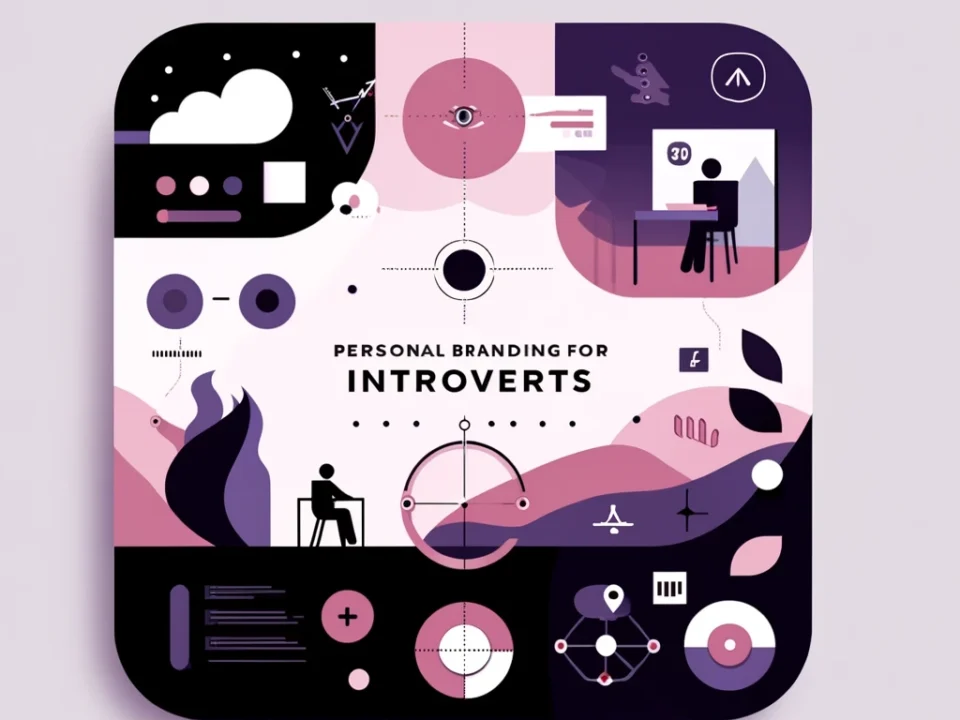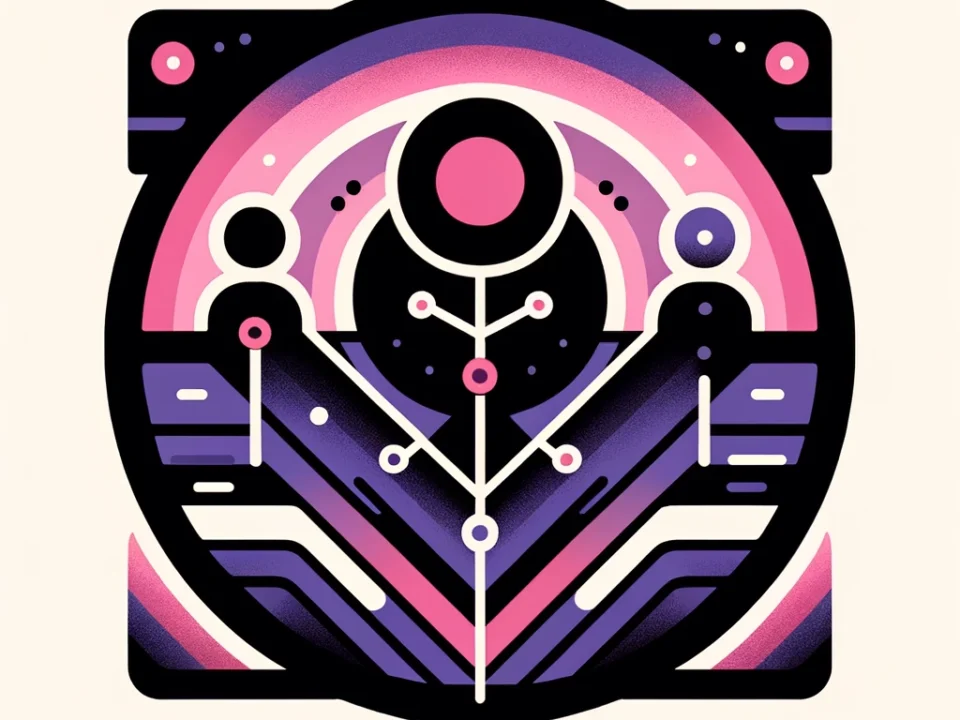When it comes to managing one’s reputation, personal branding plays a significant role because it enables individuals to take charge of their narrative and mould how others perceive them. In essence, personal branding is the deliberate process of creating and selecting an online and physical persona to affect how other people see and engage with you.
To create a compelling and genuine professional identity, think of personal branding as the art of showcasing your distinctive qualities, skills, and values. It is about defining who you are, what you stand for, and what sets you apart from the crowd of talented people. Individuals must brand themselves to attract opportunities, make lasting connections, and carve out a distinct niche in their industries, just as companies build their brands to attract customers.
Authentic Personal Brand: What Is It?
In today’s world, where personal connections and our online presence are vital in practically every aspect of our lives, personal branding is essential. The things that make us who we are—our core values, experiences, talents, emotional intelligence, and even shortcomings—combine to form our personal brand. Creating and presenting a distinct and unified self-image is known as personal branding, especially when it comes to the job market.
It is critical to consider yourself and, even more so, market yourself as a personal brand when you are looking for work. By reflecting your individuality and setting yourself apart from the competition, you can create a personal brand. Building a solid reputation that is consistent with who you really are is crucial because authenticity is important in this situation. Being authentic helps you build credibility and trust with both employers and coworkers, which is essential for career advancement.
For example, you gain the respect of your peers when your demonstrated competencies match your true abilities. In general, when there is established trust and an authentic relationship, people are more likely to work with you, support your goals, and even refer you to better career opportunities.
Developing An Authentic Personal Brand at Work
Knowing what makes you distinct is the first step towards building a genuine personal brand. Which interests do you have? Your convictions? Your advantages? Find your unique selling point and capitalize on it. After all, when we are being authentically ourselves, we feel most confident. You may synchronize your needs, desires, and purpose by allowing yourself to be who you were meant to be. This will showcase you as valuable to people around you.
An authentic personal brand should be curated with consistency across all platforms. Your character and internal ideals should be consistent with your outside appearance. Online communications need to be consistent with how you personally communicate with coworkers, family, and friends. By intentionally branding and living your principles, you may develop authenticity.
Why is it important to have an Authentic Personal Brand?
Everyone knows how critical it is to have a clear idea of their personal brand. How would they present themselves to the world? Professionally, having a strong personal brand may benefit you in a number of ways. It can help you identify and connect with like-minded professionals, create authentic social media content, and be a huge asset throughout the job search and interview process.
However, you can also profit personally from having a solid understanding of your own personal brand in a variety of ways. These are four surprising benefits of having a personal brand, ranging from boosting confidence to helping you find a deeper sense of purpose in life.
1. An authentic personal brand can increase self-awareness
You’ll discover an unexpected benefit of developing an authentic personal brand: it will help you define and validate who you are, provided you put in the introspection work required. Making an effort to build an authentic personal brand is a priceless exercise in self-awareness development. Although developing your personal brand is a lifelong process, it is undoubtedly a means to accelerate the process through self-awareness and self-discovery!
It’s a beautiful thing that when we know who we are, we can be the most genuine versions of ourselves every time we show up in the world.
2. You can define your long-term goals with an authentic personal brand.
While working with clients to create an authentic personal brand, one of the aspects we usually tend to spend a lot of time on is knowing, “What are you working towards? In an ideal scenario, where will this personal brand help you get to?” Therefore, deciding where you want your brand to help you go is an essential step in developing an authentic personal brand; you must take the time to truly articulate your life’s purpose.
A strong personal brand helps you achieve your goals and validates who you are.
3. Having an authentic personal brand makes an impact that is more powerful and lasting.
When you truly comprehend that this is who you are and that is the goal you are pursuing, you will discover that confidence comes easily to you.
You will find that you will naturally exude a sense of confidence. According to a famous author, presence is the capacity to effortlessly communicate your actual self, including your values, beliefs, abilities, and passions. It takes presence to be aware of them and capable of delivering them, particularly under duress.
Equipped with this knowledge of your principles, convictions, and goals, you infuse each space you walk into with a sense of presence that, in the end, helps you leave a more lasting and impactful impression, generally without you even realizing it!
4. An authentic personal brand enables you to reach a larger audience.
Investing time and effort into developing an authentic personal brand requires asking yourself, “What impact do I hope to make?” What sort of legacy am I trying to leave behind? For what purpose do I wish to be remembered?
Many of us search for the answers to these large, weighty concerns our entire lives! But the advantage of having a genuine personal brand is that it gets us there more quickly. It provides us with a road map to help us fill in the remaining gaps so that we may eventually identify these meaningful aspects of life.
How to make your personal brand look authentic?
Invest some time in introspection to uncover your strengths, abilities, values, and other distinctive characteristics. Examine your past achievements to determine your areas of strength.
- Describe your objectives and values.
What ideas or ideals stand out to you as important? Which tasks or competencies do you believe you might be missing? In your present work path, which experience has proven to be crucial?
You may develop your personal brand by doing this self-analysis, which will also help you become more authentic and aware of the messages you want to share with the world, whether it be through online interactions or in-person interactions.
Identify your strengths and distinctive qualities, then decide on your career objectives and direction.
- Determine who your target audiences are:
Identify the people who would most benefit from your collaboration. Employers, possible partners, associates, and influential people in the business are all included. Developing a clear understanding of your target market will enable you to choose online channels and create brand messaging that appeals to them.
Determine the requirements for experts such as yourself when defining target audiences. Is there anything your brand could do to emphasize a particular differentiator? In which businesses and sectors would you thrive? You can use this to clarify the kinds of individuals and directions you want to go in.
- Think Outside the Box:
Being creative is essential for developing an authentic personal brand. Consider the important instances in your career that influenced your choices, encounters, goals, and, in general, your path thus far. These encounters have shaped the distinct route that has brought you to this point—a journey that no one else has taken.
This distinct viewpoint can inform your thought leadership, online material, and interactions and help you differentiate yourself from the competition. People who make an impression and set themselves apart are more likely to stick in the minds of prospective clients and employers.
- Connect With People To Discover Your Possibilities
Building a solid personal brand requires extensive offline and online networking. You may find out if a company is just talking the talk or if it really does what it says by having conversations with employees at organizations that seem great. Furthermore, you may expand the reach of your brand and raise awareness of your expertise among new audiences by volunteering to speak at industry conferences or write guest pieces.
Developing an authentic personal brand does not require perfection. Since none of us are flawless, authenticity actually has nothing to do with perfection. Being self-aware is necessary for developing a genuine personal brand. You must recognize your motivations, values, priorities, and areas of weakness and strength, and you must work hard to effectively express these things through your conversations, interactions with others, and online presence. Staying true to who you are makes you stand out, gains you credibility, and opens doors for career growth, all of which contribute to a successful career that is in line with your actual self.
To sum up, personal branding is more than just a passing trend—rather, it is a revolutionary force that will influence professional marketing in the future. Taking a calculated risk allows one to truly engage their audience, take control of their story, and navigate the ever-changing professional climate. Building your own brand is a step toward self-discovery, personal development, and professional empowerment. This is valid for recent graduates, aspiring business owners, and seasoned executives alike. It is imperative to comprehend the significance of a personal brand and its ability to set you up for success in the dynamic realm of marketing in the future, when professionals are not only job seekers but also creators of their own professional paths.





